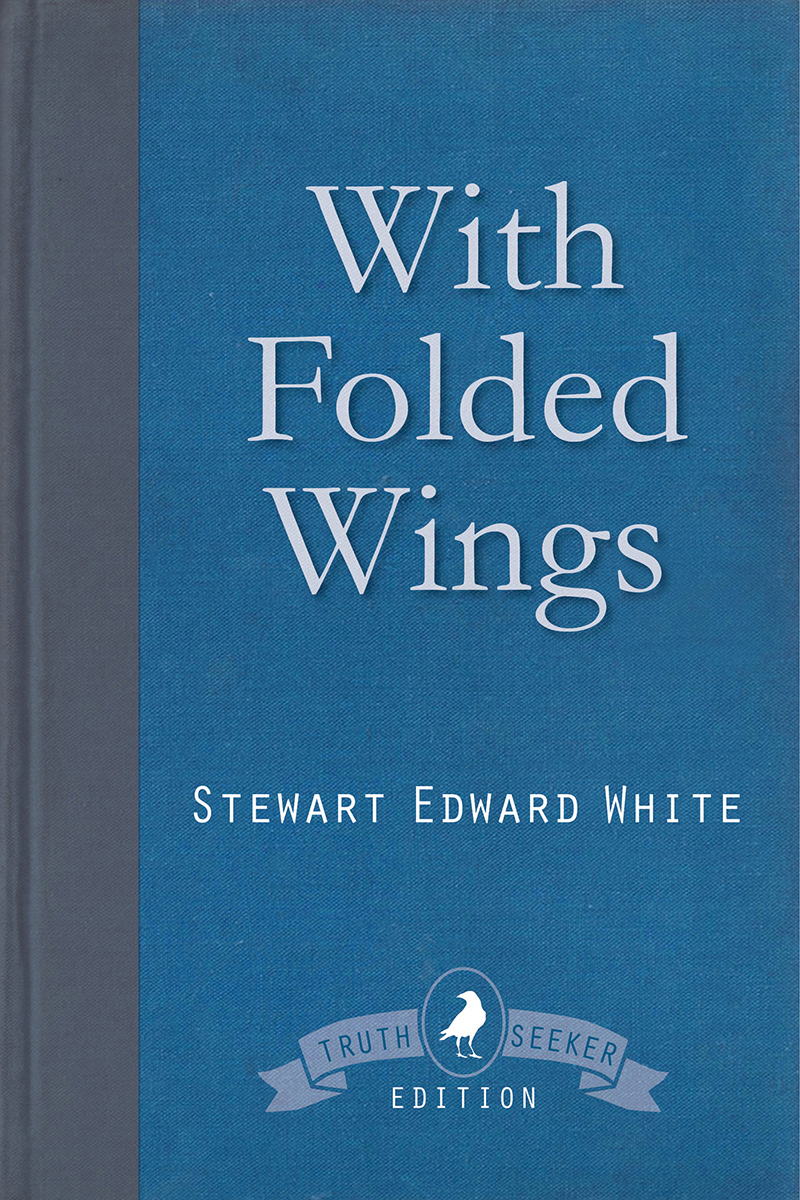1
BEFORE going on we must examine to see if we are justified in a belief in continuity after death. That belief has always been held by the vast majority of mankind. It has been questioned at times, it is being questioned, but in the long run it has held its own. Man expects to survive his bodily decease. Is that expectation justified? Is it a deep and true instinct born into him from the knowledge and wisdom and memory of his human quality? Or is it the mere expression of a hope, based on an ineradicable egocentricity?
Many attempts have been made, in many directions, to gain some assurance on this important point. Though the field of psychic research has covered much that has to do with merely an extension of man’s own powers, or with an explanation of the heretofore mysterious; nevertheless its chief effort has undoubtedly been toward definite proof of the survival of personality. Material science,—generally with negative results,—has devoted much attention to the same thing. Pure philosophy has argued in endless volumes. A few have thus become convinced that they possess indisputable proof. Nevertheless, in the long run and to the majority of people, belief in continuity is an article of faith rather than of proof. It is accepted on authority, it is accepted on instinct, it is a matter of belief held wholeheartedly or hopefully or doubtfully or provisionally or fearfully, as the case may be.
Personally I should be willing to let it rest at that. I myself have that deep inner conviction of survival beyond this earth life, and I trust that conviction. As far as my own attitude toward the universe is concerned, and all it implies, I am quite ready to proceed on that basis.
However it does not seem to me necessary to proceed on that basis. The biggest things in existence we have always to take for a time on faith, adopting them in the nature of provisional hypotheses as working premises, accepting the inner conviction, as we accept hunger and thirst, as true guides to our necessities, but this I do firmly believe: that nothing finite is ultimately inunderstandable. All occult things are capable of de-occultization. The whole progress of human knowledge is such a process. What the middle ages looked upon as miracles, we use as everyday commonplaces of applied science. What we today consider as vague mysteries will undoubtedly in their turn, when the time comes, take their places in the everyday body of knowledge. In the long last, faith is always overtaken by understanding.
2
Perhaps in time psychic research will furnish us all with the indubitable proof it seeks. I am inclined to think it will. It is a young science. In the meantime it seems to me that a very definite step may be taken in our intellectual estimate of the situation. Let us examine the whole question of personal survival beyond death in order to determine, if we may, whether any general and indubitable principles from our store of knowledge may not apply.
The disbeliever in continuity after death,—or the one who has not in full the inner conviction of survival,—considers that the personal consciousness that now animates him suffers at death an extinction, an obliteration, a dissolution similar to the dissolution that overtakes the physical body. The animating principle passes back into the source from which it came; the consciousness which has been his rejoins whatever stuff of which it is made; the physical body disintegrates and becomes again an indistinguishable part of the physical substance of which the world is composed. He cannot, in the light of his own physics, predicate a dissolution of these elements into nothingness, however. If he is rational in his thinking, he must admit the law of the conservation of matter and energy. These things may change form completely, but they must remain as part of the sum total of things. The physical constituents of his body, could they be carefully segregated and preserved, would weigh the same; the force with which he was animated, could it be saved and measured, would measure the same. Nothing is lost: it is a remergence into that from which he was made. He believes that all this takes place at the moment of his physical death.
Except as to the single last point we can agree with him in general. Continuity as an individual separate from all other individuals “forever,” in the infinite sense, is as inconceivable as infinity itself. Infinity must be a unity. We cannot conceive of space bounded by a wall; there must be something beyond the wall. We cannot conceive of space going on forever without a limit. Similarly we cannot conceive time ever ending;—or never ending! We cannot comprehend this; and we should not try. But this at least we can apprehend, that infinity whether of space or time or consciousness or whatever of reality, must be one thing, comprehending in itself all that may be. Otherwise it at once ceases to be infinity. If there is but one separate thing, and all else, then we have the finite. Therefore we cannot avoid the thought, no matter how little we may comprehend it, that in the infinite at least there must be remergence of all separateness; I must repeat, we cannot comprehend this, but we can apprehend it.
Therefore with the materialist’s conception on this score the believer in continuity diverges in only one respect. The former would place his point of remergence at the moment of physical dissolution. He would say that that point makes the merging and coincidence of the individual consciousness or life or spirit with the All consciousness, the Infinite, the Absolute. He limits his conception of continuity to the thing he can at present see. The other, on the contrary, continues his individual into a future which the physical eye cannot behold. Whether that continuance extends but a fleeting moment beyond its dissociation with the physical, or out into unguessed aeons of time has little to do with the matter in essential. For, as we have seen, in the strict sense of the term no bit of separateness can endure “forever,” in the literal sense, except as by successive and expanding growth and inclusion it tends in the infinite to become itself the All-conscious.
Thus, I think, all must have at least a common starting point from which to move forward.
3
We can also with all confidence predicate another apprehension, rather than comprehension, of what lies outside our limit markers of time and space. We cannot avoid the conception that for some inscrutable purpose, which we are incompetent to understand, the Infinite has by time and space conditioned itself, at least in one phase; and that within those conditions it has developed, and is continuing to develop, increasing self-awareness through the individual manifestations of an ever-growing Idea. Starting, in space and time, always with the extremest simplicity, it runs through an orderly evolution to great complexity. Matter, beginning with proton and electron, gradually builds up into the (presumably) ninety-two elements, which in turn combine in varying proportions and conditions into a bewildering variety of substances. Life proceeds from its first faint stirrings of what seems to us one kind of force, through a swarm of embodiments, to its multiform manifestations as we know it. Consciousness too progresses in evolution from the dull mechanical reaction to natural law up to the flexible and startling embodiment we know in the human being. All things we are capable of observing, whether by our physical senses or in the inner processes of mind and feeling, seem to be subject to this same law. Beginning with the simplest conceivable elements they proceed by expansion, by development and by accretion, to carry out a definite and orderly evolution.
And, furthermore, we perceive that this evolution is indeed orderly. There are no shortcuts. In the case of those smaller processes which we can view as a whole, and as completed, we find the return to the starting point with enrichment of experience, with function fulfilled, is always around the arc of a circle. This point has been touched on in an earlier chapter. We must traverse the whole circumference before we find ourselves back again at the original simplicity. This again is true in all cosmos, whether we view it from the standpoint of matter, of life or of consciousness. It obtains in physical nature, it obtains in our own psychological experiences, it obtains in our laboratory experiments, it obtains in the lives of men and the lives of planets. The completed circle is more than a symbol; it is a universal fact. In the case of any creature, any law, any idea, anything palpable or impalpable that develops, this rise into complexity and return enriched to simplicity holds good.
Nor, to repeat, can one cut across in a return to the starting point. He merely brings back his complexities with him. The scientist still in the intricacies of experiment cannot state his problem simply: only when it has ceased to be a problem, only after he has completed his experiments, can he express his thesis with the simple lucidity of one who knows. If it be acknowledged that radioactivity may by the subtraction of electrons result in an elemental resimplification, the process cannot be otherwise than orderly. Uranium, by any conceivable process, could not at once throw off ninety-one of its free electrons to become hydrogen. In its loss of constituents it must pass back down the arc,—ninety-one UX2, ninety for thorium and so on. It is an invariable process that may be studied anywhere in nature, anywhere in activity of any sort whether social, material, historical, psychological, biological,—what you will. One has only to look about one.
4
That is the second consideration we are to notice. The third follows naturally from it, and is as susceptible to observation in whatever direction one looks, and whatever the type of process one examines. It is this:
No creature, no law, no idea, no thing palpable or impalpable can abruptly, at any point short of the completed circle, break off to return to its inception or origin. In other words, again, there are no shortcuts.
The circle of function may, of course, be large or small. It may, as we have seen, be a complicated building one by one of near a hundred physical elements from the primordial ether, their perfection through embodiment, and their gradual and graceful resimplification through radioactivity: the whole process consuming aeons of time and extending in prospect beyond the vision of all but the farthest speculation. Or its circumscribing may be performed almost in the space of a breath. All the processes of nature seem to be laid before us for our edification on this point. We can see the process in any size that suits us, in any magnitude fitted for our examination. But always it is the completed circle. So universal is this law in the cases of all things we are capable of understanding that we have no intellectual right, short of an absolute proof to the contrary, to deny its application to those things we do not comprehend.
And from these considerations we can deduce that differentiations of consciousness also must have a circle of function to round out, that they cannot return to original simplicity—and hence to original source—until their functions are fulfilled. No such differentiation in the finite can remerge into the All-consciousness of the infinite until that particular circle of evolution,—of which we are part—has been closed. At no point short of a completion of the whole scheme can any one of those differentiations break down and merge with the Absolute. They are, and must remain, intact.
5
This may be conceived to be true of differentiations of consciousness, what we have called qualities of consciousness. But that by no means logically follows as to the particular manifestations of each quality. It may be true of the bee quality, in essence, but not necessarily of the individual bees. The Idea is intact and must follow in its circle the rest of finity, but the individual may quite satisfactorily and completely round its own little circle of function and remerge, at the point of regained simplicity, with its quality. It will continue as an individual as long as—and only as long as—its own circle is incomplete.
The duration of continuity, then, in the case of the individual, may be considered as coincidental with the complete rounding of its own circle, the complete fulfilling of its individual function, whatever it may be.
6
The question of survival thus at once defines itself. It must become evident that whether any one thing completes its circle within the circumstances with which we are familiar, and before our physical eyes; or whether those eyes are seeing only a segment which rounds its completeness beyond our vision, depends entirely on whether or not we are observing a function completely fulfilled.



